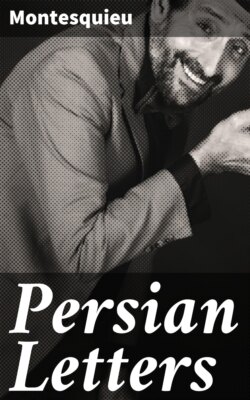Читать книгу Persian Letters - Montesquieu - Страница 9
На сайте Литреса книга снята с продажи.
VI
ОглавлениеTable of Contents
Soon after the publication of the “Persian Letters” Montesquieu went to the capital to enjoy his reputation. There he found society more agreeable in Paris than in Versailles, because in the small world of the latter intrigue was the rule, whereas in the former people amused themselves. He became a member of the informal Club de l’Entre-sol, which met on Saturdays in the house of President Hénault. Bolingbroke was the founder of this club, and its most distinguished member. Among those who frequented it were the Abbé de Saint-Pierre, D’Argenson, “secretary to the Republic of Plato,” and Ramsai. Probably the principal benefit which Montesquieu derived from his attendance at the Entre-sol was his introduction to Lord Chesterfield; but he continued a member until Cardinal Fleury interdicted the club in 1730, on account of the active part it began to take in politics.
With the aid of Mademoiselle de Clermont, Louis XIV.’s unspeakable tenth muse, Montesquieu was elected to the Academy in 1725; but his election was invalidated on account of his non-residence in Paris. He then returned to Bordeaux, sold his presidentship, acquired the necessary qualification, and, not without a questionable intrigue, was elected in 1728 to the chair rendered vacant by the death of De Sacy, a forgotten translator.
In the spring of the same year Montesquieu set out on his travels with a nephew of the Duke of Berwick, whose affairs called him to Vienna. It was during this journey that he applied for nomination to some diplomatic post. In urging his claim he pointed out that he was not duller than other men; that, being of independent means, honour was the only reward he sought; that he was accustomed to society, and had toiled (beaucoup travaillé) to make himself capable. The powers that then were, however, elected to dispense with his services.
Montesquieu was much disappointed with his reception at the hands of the great. On his first entrance into society he had been announced as a man of genius, and had been looked on favourably by people in place; but when the success of the “Persian Letters” proved that he actually had ability, and brought him the esteem of the public, people in place began to be shy of him. It was no consolation for him to tell himself that officialdom, secretly wounded by the reputation of a celebrated man, takes vengeance by humiliating him, and that he who can endure to hear another praised must merit much praise himself.1 He was deeply disappointed. In his youth he had written, “Cicero, of all the ancients, is he whom I should most wish to be like.” A public career was denied him and he suffered, having set his heart on it; but he was more of an ancient Roman than Cicero, if that was his ambition; and it is surely better to be famous as the author of “L’Esprit des Lois,” than to be infamous as one of Louis XV.’s ministers.
In Italy he found Lord Chesterfield. The two men had already tested each other in the Entre-sol, and they were now glad to travel together. Journeying to Venice, they met Law, the creator of credit, who, having preserved his taste for speculation and a fine diamond, passed his time in staking the latter at the gaming-table. Montesquieu had dealt severely with him in the “Persian Letters,” but that did not prevent Law from receiving him pleasantly; nor did the ruined financier’s complaisance prevent Montesquieu from applying the lash again in “L’Esprit des Lois.”
From Venice they went to Rome. Montesquieu frequented the salon of Cardinal Polignac, the French ambassador; and the city, both ancient and modern, had its due effect. Before leaving it, he paid a visit to the Pope, Benedict XIII., who said to him, “My dear president, I wish you to carry away some souvenir of my friendship. To you and yours I grant permission to eat meat every day for the term of your natural lives.” Montesquieu thanked the Pope and withdrew. Next day they brought him the dispensation with a note of charges. “The Pope,” said Montesquieu, returning the papers, “is an honest man; I will not doubt his word; and I hope God has no reason to doubt it either.” An answer becoming a shrewd economic Gascon. After visiting Naples, Pisa, Florence, Turin, and the Rhine country, they arrived at the Hague, where Chesterfield was English ambassador. From the Hague they sailed to England, reaching London in November, 1729.
